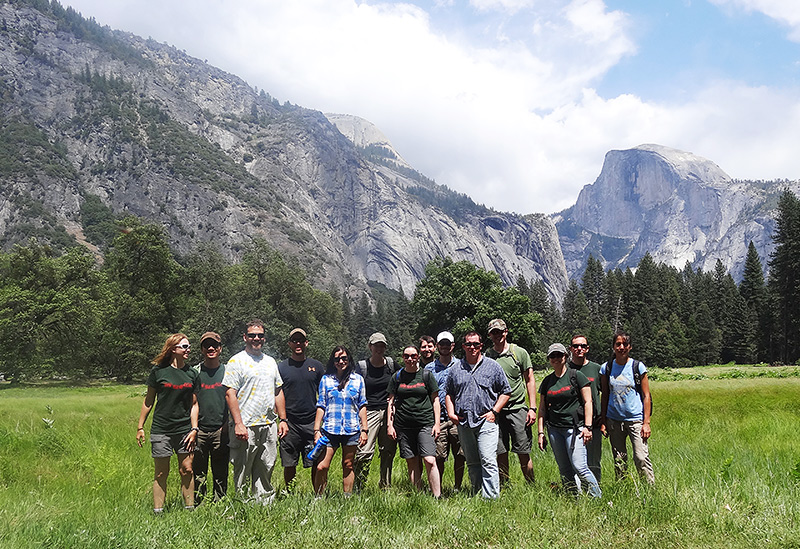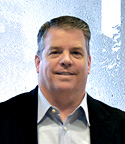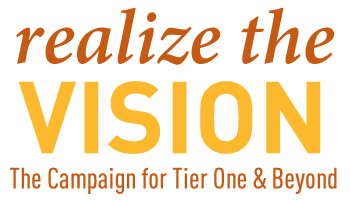
UT Dallas students and faculty within the Department of Geosciences (seen here at Yosemite National Park) gain vital experience through geologic studies in remote regions with highly specialized research equipment.
Heading into the fifth and final year of Realize the Vision: The Campaign for Tier One & Beyond – UT Dallas’ first comprehensive giving campaign – the University is resonating with the impact of unprecedented support. Gifts from entities such as Pioneer Natural Resources and The Miles Foundation are transforming the Department of Geosciences in the School of Natural Sciences and Mathematics.
In 2010, Irving-based Pioneer Natural Resources committed $600,000 to elevate several aspects of the geosciences program – a curriculum and research program focused on immersing students in the study of the composition, structure and history of the Earth. To date, this commitment has generated an additional $125,000 through matching gift programs from the state of Texas and The University of Texas System Board of Regents. Pioneer made a new commitment for an additional $600,000 in 2013, with $450,000 for the geosciences department and the remainder divided between mathematical sciences and geospatial sciences, which is in the School of Economic, Political and Policy Sciences.
“As a leading-edge employer of young geoscientists, Pioneer Natural Resources recognizes that the foundation of good science is built within strong, well-funded academic departments,” said Chris Cheatwood, executive vice president at Pioneer. “Providing top-tier graduates requires a top-tier program, and we are privileged to partner with UT Dallas geosciences to ensure its success reaches far into the future.”

Chris Cheatwood, Pioneer Natural Resources executive vice president
A portion of Pioneer’s funds has been dedicated to advancing field studies and research programs and to revamping and upgrading instructional and research infrastructure at the University.
“Undergraduate and graduate student involvement in field-based research and courses is a fundamental component in the development of professional geoscientists,” said Dr. John Oldow, head of the UT Dallas' geosciences department.
The department’s evolution comes at a time when the entire geosciences industry is rapidly expanding. According to the U.S. Department of Labor, the need for energy, environmental protection and responsible land and resource management will spur demand for more geoscientists. That, combined with federal agencies and industry pushing for greater research into new exploration techniques to unlock previously unreachable reserves, means increased demand for geosciences graduates.
To accelerate the development of graduates, Pioneer’s funds also support students who elect to complete fast-track degrees, consolidating the time it would take to receive both undergraduate and graduate degrees.
“The generous gifts from Pioneer have initiated and are sustaining an unprecedented enhancement of instructional and research capacity in the Department of Geosciences,” Oldow said.
The impact of Pioneer’s investment will be further accelerated thanks to a $1 million commitment from The Miles Foundation in Fort Worth. The grant will establish the Ellison Miles Center for Geological Field Studies and further enhance the field research capacity of students and faculty.
The foundation gift will be used to design, build and equip a mobile research laboratory. Students and faculty will be able to access geologic data and satellite imagery from even the most remote field course sites and support acquisition, analysis and visualization tools needed to solve complex geologic problems. Data gathered in the field will enable additional research in the center’s laboratory facilities at UT Dallas.
Over the past few years, supporters inspired by the University’s Tier One aspirations and the direction of the department have established 12 Opportunity Funds to benefit the Department of Geosciences. This unrestricted support allows the department to enhance instruction and research, take advantage of timely opportunities and address critical needs.
